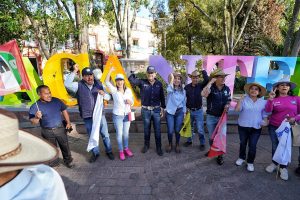A further 330,000 people will fall below the poverty line when the federal government reduces welfare support payments in less than two months, new analysis shows.
A researcher at the Australian National University has conducted modelling showing the “dramatic” impact the $100 reduction of the coronavirus supplement will have when it is cut on 1 January.
The federal government this month announced it would extend the fortnightly payment beyond December at the reduced rate of $150 per fortnight, which the projections show will see the number of Australians living in poverty rise from 3.49 million to 3.82 million.
“As you can see there is a very dramatic impact on poverty numbers from the amount of money that people have provided [to them],” researcher Ben Phillips told SBS News.
“We are seeing elevated levels of poverty that are now well-above the levels that we had pre-COVID.”
The coronavirus supplement has been paid to around two million people through JobSeeker, student and parenting payments.
It had originally been paid at $550 per fortnight, before it was cut at the end of September to $250 a fortnight.
Prime Minister Scott Morrison last week said additional welfare support provided during the pandemic had helped “cushion the blow” of the coronavirus recession.
But he said the government did not want to extend elevated levels of support for too long.
“We cannot allow the lifeline that has been extended to also now hold Australia back as we move into the next phases of recovery,” he said.
However, The Greens and Labor have seized on Mr Phillips’ modelling as evidence the government is making a mistake by reducing the supplement.
“It is shocking to see the number when it is written down – but this is exactly what we thought would happen because the government is taking away money from people who need it,” Greens Senator Rachel Siewert told SBS News.
“They have dropped people way below the poverty line which makes it impossible for people to make ends meet.”
Labor’s social services spokesperson Linda Burney said the unemployment support had provided a safety barrier from poverty for many forced to rely on the payment during the pandemic.
“Unemployment support is economic support, and cuts to unemployment support will also jeopardise jobs and could see more Australians in need of that support,” she told SBS News.
Previous research conducted by Mr Phillips projected the government’s JobKeeper wage subsidy and boosted JobSeeker payment saved about 2.2 million people from poverty.
His analysis sets the poverty line at $370 per week, which is 50 per cent of median income after housing costs.
Mr Phillips said his modelling shows if the coronavirus supplement had remained at $550 there would be 2.66 million people living below the poverty line by January – a decrease of 1.16 million.
His forecasts take into account government estimates the number of people on JobSeeker would increase from about 1.5 million to 1.8 million by Christmas.
“An additional concern will be around what happens to the economy when you have more people on lower welfare payments and less money moving around as a result,” he said.
Deloitte Access Economics warned in a report earlier this year the economy will lose $31.3 billion and 145,000 full-time jobs over the next two years when elevated welfare payments end.
Community groups including the Australian Council of Social Service (ACOSS) and the Unemployed Workers Union have previously warned against cutting welfare payments at the end of the year.
“People are going to struggle to put food on the table and importantly keep a roof over their head,” ACOSS spokesperson Charmaine Crowe said.
“These are the real life impacts of reducing income support and we’re very worried people are facing an extremely tough time – both now and after Christmas.”
The extended coronavirus supplement is set to be paid at $150 until March – but the government has provided no clarity on the future of payments beyond that point.
Senator Siewert said more certainty was needed.
“There is still no certainty for people – they can’t plan – they don’t know what they are going to do,” she said.
Mr Phillips also said he was “extremely concerned” about a return to the previous pre-pandemic JobSeeker rate of around $40 a day.
“You will have almost an unprecedented number of people in poverty as a result – it undoubtedly puts persons and families and households in a lot of very significant financial stress,” he said.
This content was originally published here.
EL 2 DE JUNIO DEL 2024 VOTA PARA MANTENER
TU LIBERTAD, LA DEMOCRACIA Y EL RESPETO A LA CONSTITUCIÓN.
VOTA POR XÓCHITL












Comentarios